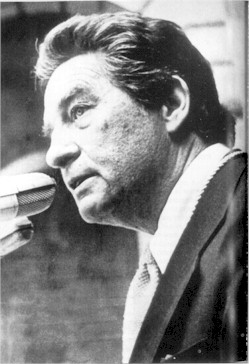The Clerk's Vision (1949)
Octavio Paz: Citáty v angličtine
Zdroj: The Monkey Grammarian (1974), Ch. 9
Zdroj: The Monkey Grammarian (1974), Ch. 9
Between Going and Staying
Zdroj: The Monkey Grammarian (1974), Ch. 9
André Breton or the Quest of the Beginning
Alternating Current (1967)
Sun Stone (1957)
Zdroj: The Monkey Grammarian (1974), Ch. 1
